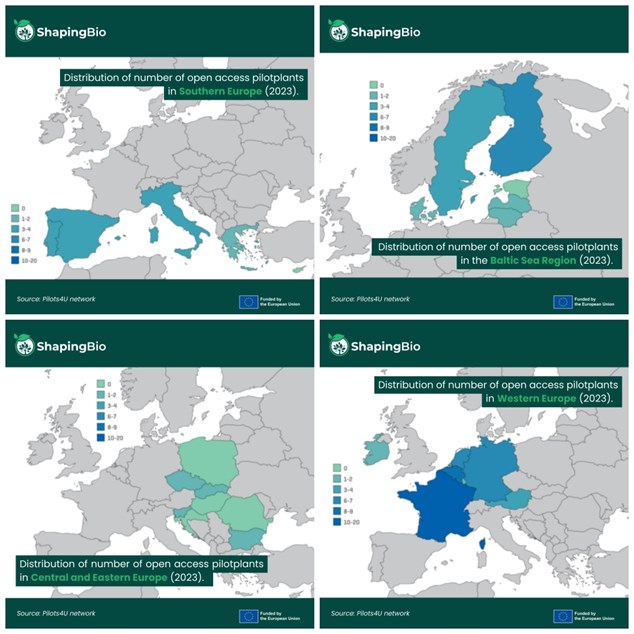Open-access pilot plants play a crucial role in the bioeconomy as they allow industry to bring bio-economy innovations from the laboratory into industrial practice. This transition is vital for the successful commercialization of innovative bio-based products.
Open-access pilot plants are shared facilities that are open to all companies and research institutes and offer a wide range of innovative, state-of-the-art equipment and expertise. The facilities are among others important in relation to:
- Facilitating Innovation and Scale-Up:
Innovators often struggle to move from lab-scale research to pilot-scale testing due to the significant investment required in infrastructure and equipment. Open-access pilot plants provide the necessary facilities and equipment to test and refine processes on a larger scale without the prohibitive costs of building their own infrastructure. Further, these facilities enable startups and small businesses to experiment, iterate, and validate their technologies in a realistic industrial environment, significantly reducing the risk associated with scaling up.
- Reducing Costs and Barriers to Entry:
The piloting phase demands substantial time and financial investment, which can be a barrier to innovation. By offering shared facilities, open-access pilot plants lower these financial barriers, making it easier for new ventures to enter the market and develop their products.
- Access to Expertise and Advanced Equipment:
Open-access pilot plants are typically operated by specialized companies and research institutes that possess advanced, state-of-the-art equipment and a high level of expertise. This access allows innovators to benefit from professional support and sophisticated technology that they might not otherwise afford. The expertise available at these facilities helps in training qualified staff, further supporting the growth and competence of the bio-based industry.
- Promoting Bioeconomy Growth:
By lowering the barriers to scale-up, open-access pilot plants accelerate the growth of the bioeconomy, which is essential for producing sustainable, fossil-free materials and achieving climate-neutral goals.
In ShapingBio we have mapped the number of open access pilot plants in 4 European Macro Regions to shed light on the availability of such facilities. As a proxy indicator for the existence and diffusion of pilots plant, data from the Pilots4U network has been used. The Pilots4U network sets up a free online database that lists European pilot and demonstration infrastructures and their scale-up equipment for various bio-economy processes. The Pilots4U database currently contains 500+ entries from 100+ organisations present in all EU countries.

Overview of Maro-Regions and countries
The mapping of the open-access pilot and demo facilities through the Pilots4U network database showed:
- a rather even distribution of facilities in Southern Europe Region. All the countries have a rather medium number of facilities, even though the countries differ considerably in size.
- a mixed picture in the Baltic Sea Region. While Finland and Sweden possess a high one-digit number of facilities, Denmark and Estonia rather lack such infrastructure.
- a low number of facilities in the Central and Eastern Europe Region. Around half of the countries possess at least one facility, whereas in the other half of countries this does not exist yet.
- a comparably high availability of facilities in the Western Europe Region compared to the other Macro Regions. All larger countries in the Region have at least a few facilities.
Click on the picture below to get a graphic overview of the distribution of number of open access pilotplants in the four macro-regions.

Interested to learn more?
The mapping of the open-access pilot and demo facilities in the 4 European Macro Regions is part of the recently published report called ”Report on macro-regions – Mapping of initiatives, structures, instruments and key challenges for EU’s macro-regions". If you’re curious to know more about the bioeconomy sector in the 4 Macro Regions go to the report here

